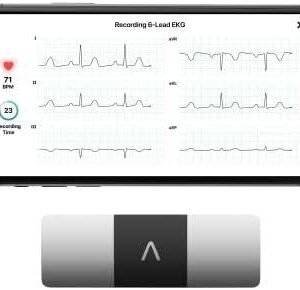In an era marked by rapid technological advancements and increasing concerns over data breaches, the healthcare sector stands at a critical juncture where patient security and streamlined access to sensitive information converge. Biometric authentication, which utilizes unique physiological or behavioral characteristics for verification, has emerged as a frontrunner in reinforcing the integrity of healthcare systems. As the industry grapples with the complexities of safeguarding patient data while enhancing operational efficiency, the implementation of biometrics presents a promising solution. This article delves into the future of biometric authentication in healthcare, exploring the technological innovations reshaping identity verification, the inherent challenges of fostering adoption, and the potential implications for patient trust, regulatory compliance, and overall system resilience. By examining current trends and anticipating future developments, we aim to provide a comprehensive overview of how biometric solutions can transform the landscape of healthcare security.
Table of Contents
- Exploring the Latest Biometric Technologies in Healthcare Security
- Assessing the Benefits and Challenges of Biometric Authentication Systems
- Implementing Best Practices for Biometric Integration in Healthcare Environments
- Future Trends in Biometric Authentication: Enhancing Patient Privacy and Data Protection
- The Conclusion
Exploring the Latest Biometric Technologies in Healthcare Security
The integration of biometric technologies in healthcare security is transforming how sensitive information is accessed and protected. Biometric solutions leverage unique physiological characteristics, such as fingerprints, facial recognition, and iris scans, to authenticate individuals, ensuring that only authorized personnel can access critical patient data. This level of security is increasingly vital in a landscape marked by rising cyber threats and stringent regulatory requirements. Notably, multi-factor authentication (MFA) systems that incorporate biometric verification add an extra layer of protection, reducing the risk of unauthorized access and data breaches.
Hospitals and healthcare facilities are starting to adopt these technologies not just for physical access control, but for digital health records, medication administration, and more. The benefits of implementing biometric technologies include:
- Enhanced security: Biometric traits are nearly impossible to replicate or share.
- Improved efficiency: Quick access to data reduces wait times for both medical staff and patients.
- Compliance assistance: Helps fulfill HIPAA regulations regarding patient data security and privacy.
As the landscape continues to evolve, health organizations are increasingly considering the implementation of these cutting-edge solutions. A preliminary overview of common biometric technologies being explored is illustrated in the table below:
| Technology | Description | Potential Applications |
|---|---|---|
| Fingerprint Scanners | Uses unique patterns of ridges and valleys on fingers. | Access control, staff login, medication dispensing. |
| Facial Recognition | Identifies individuals based on facial features. | Patient check-in, visitor monitoring. |
| Voice Recognition | Analyzes vocal patterns and speech nuances. | Patient interactions, medical dictation. |
| Retina Iris Scanning | Examines the unique patterns in the iris of the eye. | Secure data access, patient verification. |
Assessing the Benefits and Challenges of Biometric Authentication Systems
The advent of biometric authentication systems in healthcare presents a myriad of advantages that can significantly enhance security protocols. By utilizing unique physical characteristics, such as fingerprints, facial recognition, or iris scans, organizations can ensure that sensitive patient data is accessed only by authorized personnel. Some of the key benefits include:
- Enhanced Security: Biometric traits are difficult to forge or steal, making unauthorized access nearly impossible.
- Streamlined Access: Biometric systems allow for faster and more convenient access to restricted areas and information, improving workflow efficiency.
- Audit Trail: These systems can log every access attempt, providing a comprehensive audit trail for compliance and accountability.
Despite its numerous benefits, the implementation of biometric authentication systems in healthcare does not come without challenges. Institutions must navigate issues such as privacy concerns and the risk of data breaches. Additionally, the following challenges are significant:
- Implementation Costs: The initial investment in biometric technology can be substantial, posing a barrier for smaller healthcare facilities.
- System Reliability: Environmental factors and physical changes to individuals can occasionally affect the accuracy of biometric readings.
- Public Perception: There is often skepticism from patients regarding the privacy of their biometric data, which could hinder adoption.
Implementing Best Practices for Biometric Integration in Healthcare Environments
Integrating biometric authentication systems in healthcare settings requires a multifaceted approach to ensure both security and usability. Best practices should prioritize the following key areas:
- Data Privacy: Implement stringent protocols to safeguard personal data collected through biometric systems, abiding by regulations such as HIPAA.
- System Interoperability: Ensure compatibility with existing healthcare IT systems to facilitate seamless integration.
- User Training: Provide comprehensive training sessions for healthcare staff to enhance familiarity with biometric systems and their functionalities.
- Accessibility: Design biometric solutions that are user-friendly, catering to a diverse population, including those with disabilities.
Moreover, healthcare organizations should also conduct regular security audits and updates of biometric systems to combat emerging threats. Establishing a feedback loop with users helps in identifying areas for improvement and optimizing the system’s functionality. A well-structured plan for incident response is essential to manage potential breaches effectively. Below is a concise overview of the advantages of biometric integration in healthcare:
| Advantage | Description |
|---|---|
| Enhanced Security | Provides robust authentication replacing traditional passwords. |
| Streamlined Processes | Speeds up patient check-ins and access to electronic records. |
| Reduced Fraud | Minimizes impersonation risks and insurance fraud. |
Future Trends in Biometric Authentication: Enhancing Patient Privacy and Data Protection
The landscape of biometric authentication in healthcare is rapidly evolving, driven by technological advancements and increasing concerns over patient privacy. As organizations strive to implement systems that ensure security while providing seamless access to medical records, several future trends are emerging. Key innovations expected to reshape the sector include:
- Multi-Factor Biometric Systems: Combining different biometric modalities such as fingerprints, facial recognition, and voice recognition for enhanced security.
- Decentralized Authentication Protocols: Utilizing blockchain technology to create secure, tamper-proof patient identities.
- AI-Powered Biometric Analytics: Employing machine learning algorithms to identify patterns and improve verification accuracy.
Moreover, as patient data breaches become more prevalent, developing robust privacy-preserving techniques will be essential. Emerging trends aimed at enhancing data protection include:
| Trend | Description |
|---|---|
| Continuous Authentication | Monitoring user behavior patterns for ongoing validation during a session. |
| Privacy-Enhancing Technologies | Implementing differential privacy to protect individual data in aggregate analyses. |
| Enhanced User Consent Mechanisms | Empowering patients with control over their biometric data sharing preferences. |
The Conclusion
the integration of biometric authentication in healthcare represents a significant advancement in security protocols, poised to enhance patient privacy, streamline access to medical records, and fortify the integrity of health information systems. As we move toward an increasingly digital landscape, the healthcare sector must prioritize the adoption of robust biometric solutions to address the growing threat of data breaches and identity fraud. It is imperative that stakeholders invest in research and development to refine these technologies, ensuring they are not only effective but also user-friendly and compliant with regulatory frameworks. By leveraging cutting-edge biometric systems, healthcare institutions can safeguard sensitive data, improve operational efficiency, and build patient trust in the digital age. The future of healthcare security lies in harnessing the power of biometrics, presenting an opportunity to create a more secure, reliable, and patient-centric ecosystem for all.





